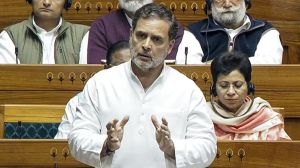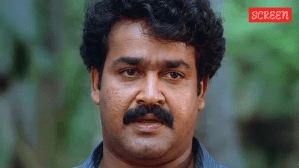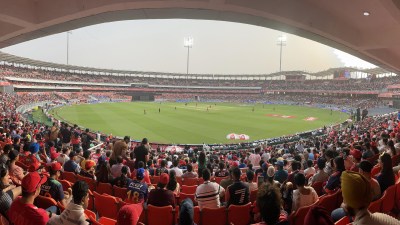The Centre’s initiative to revive the debate on holding Lok Sabha and state assembly elections together started with a phone call from the Prime Minister’s Office (PMO) to the Election Commission (EC) last year, show documents accessed by The Indian Express under the RTI Act.
The topic of simultaneous polls made headlines this year when Prime Minister Narendra Modi made a strong pitch for it at a BJP meeting in March. But what wasn’t reported is that the PMO had directly reached out to the EC on the feasibility of conducting Lok Sabha and state assembly elections together, less than a year after Modi was elected to power in May 2014.

Interaction between the PMO and EC is rare and unusual, but not improper, a former Chief Election Commissioner (CEC) told The Indian Express on condition of anonymity. The EC’s communication with the government on electoral matters is normally limited to the law and home ministries.
A note dated January 28, 2015, signed by then CEC H S Brahma, states, “Shri Nripendra Misra, Pr (Principal) Secretary to PM, informed me that there is a strong feeling of having simultaneous elections for both Parliament and the state assemblies. He mentioned that the repetitive state elections of all the 36 states and UTs causes lots of disruption, both in terms of implementation of various schemes as well as socio-economic scenario. There are states, for example erstwhile Andhra Pradesh, where between 2008-2013, there were 60 bye-elections held on flimsy grounds, where same candidate resigns and is re-elected after few months. This causes loss of public confidence besides tremendous financial cost to the state. After all, elections cost money.”
Watch Video: What’s making news
It then goes on to say that the EC should prepare a note in three weeks to debate the matter internally as well as with all political parties and experts. This background paper was eventually shared with the parliamentary standing committee on law and justice, which, in its final report submitted in December 2015, recommended simultaneous elections to Lok Sabha and state assemblies.
Brahma, who retired as CEC on April 19, 2015, confirmed his interaction with the PMO. “I remember in 2015, I had received a telephone call from the PMO saying that we should prepare some sort of a backgrounder on whether it can be done or not. As you know, the EC studied it and shared its report with the government. I am sure the government will take a decision accordingly,” he told The Indian Express.
Misra was unavailable for comment.
Simultaneous elections is a BJP pet project which was flagged by its veteran leader LK Advani in 2011. It also found mention in the party’s manifesto for the 2014 Lok Sabha elections.
Story continues below this ad
As reported by The Indian Express on June 8, the EC formally endorsed the proposal in a letter sent to the law ministry in the first week of May. The poll panel, however, flagged several logistical and financial challenges that have to be overcome before it can prepare to hold state and central elections together.
For starters, the government will have to amend the Constitution to either curtail or extend the term of some of the state assemblies to enable the EC to draw up a common poll schedule. Secondly, such an exercise will require largescale purchase of Electronic Voting Machines (EVMs) and Voter Verifiable Paper Audit Trail (VVPAT) machines. According to the Commission, it would need Rs 9,284.15 crore to procure the additional EVMs and VVPATs. Moreover, the machines will have to be replaced every 15 years, which would again entail more expenditure.
The concept of simultaneous polls isn’t new to the country. The first elections to the Lok Sabha and all state assemblies were held together in 1951-52. This practice continued in the three subsequent general elections held in 1957, 1962 and 1967. But with the premature dissolution of some state assemblies in 1968 and 1969, this cycle was disrupted.

 The concept of simultaneous polls isn’t new to the country. The first elections to the Lok Sabha and all state assemblies were held together in 1951-52.
The concept of simultaneous polls isn’t new to the country. The first elections to the Lok Sabha and all state assemblies were held together in 1951-52.






